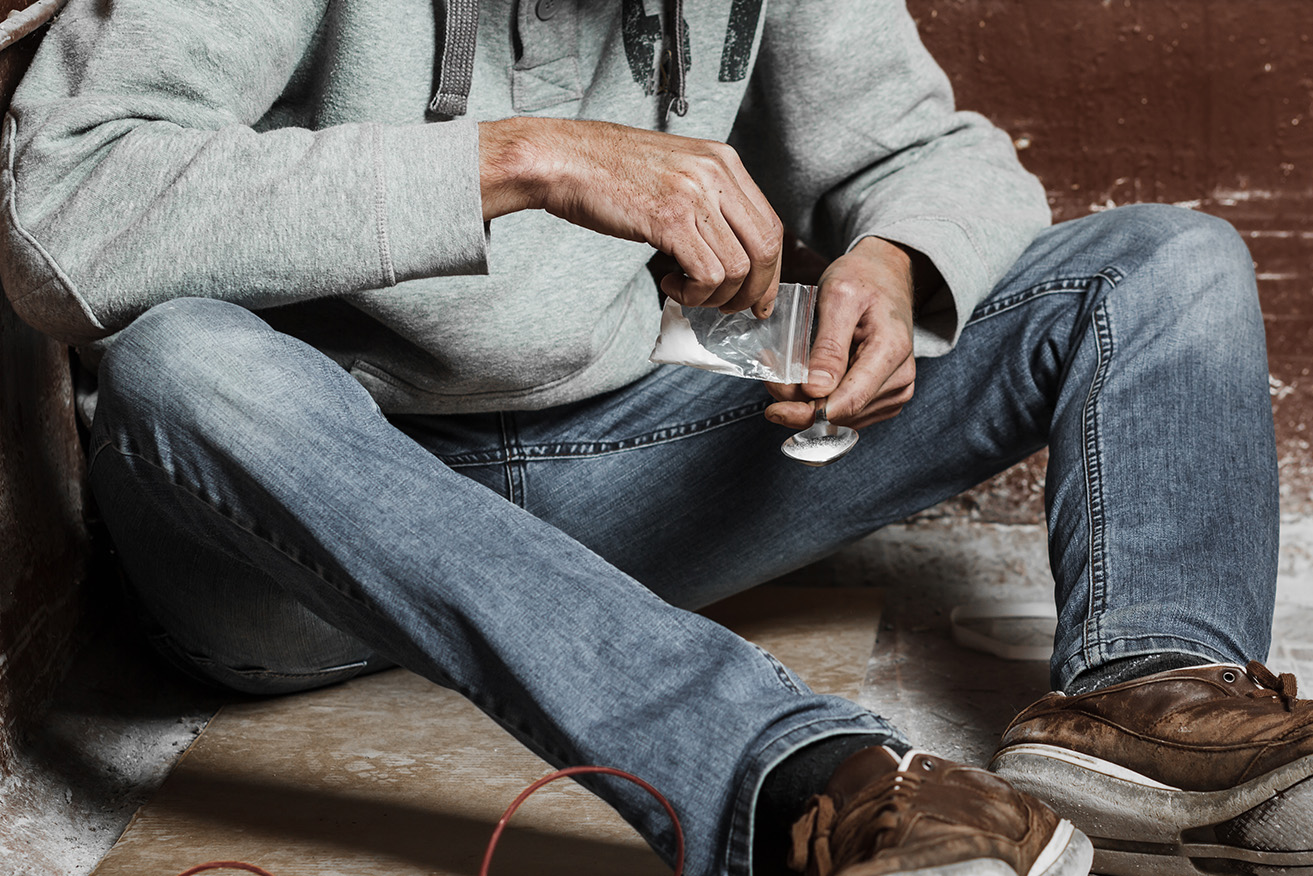Heroin Abuse Treatment Program
Diamorphine (or Diacetylmorphine) is a substance desired for its ability to produce a strong euphoric effect in the human body. You may know it by its more common name, heroin. Because of it's extremely addictive nature, it's important to seek help if you or a loved one struggles with a heroin addiction.

It's time to begin your Redemption Story

What is Heroin?
Heroin comes in a variety of forms, including a brown powder, an off-white powder, and a dark brown or black tarry resin. For decades, heroin has been listed as a controlled substance sought for its strong pain killing properties and its feel-good rush. Heroin is derived from the opium poppy plant (papaver somniferum).
It is widely believed that heroin is one of the fastest growing abused substances in the U.S. There are increasing numbers of heroin users each year. It is a highly addictive psychoactive substance being sold on the streets today. The risk of addiction is extremely high, even for first-time users. It can be smoked, snorted or injected intravenous. As heroin is a respiratory depressant, it also increases the risk of overdose.
Physical Symptoms of Heroin Abuse
The signs and symptoms of heroin abuse or some form of opioid use disorder can range from behavioral changes to physical symptoms.
Here are some signs that you may be addicted to heroin:
- Sudden agitation or drowsiness
- Slurred speech
- Constricted (small) pupils
- Depression
- Memory problems
- Needle marks
- Runny nose or frequently sniffing
- Constipation
- Reduced sense of pain
- Behavioral Symptoms of Heroin Abuse
- Sudden change in appearance
- Sudden lack of concern over hygiene
- Financial issues
- Lying to friends and family
- Increasingly risky or dangerous behavior
- Loss of interest in things once found pleasurable
While heroin withdrawals are not usually life-threatening, they have been described by some as feeling like they are dying. At times, withdrawal symptoms can be compared to the "flu x 100." Heroin withdrawals occur when your body has become physically dependent on the drug. The substance has become so entrenched in your body that without it you cannot function properly.
Insurance verification is fast, free, and easy.
Redmeption Addiction makes getting into treatment easy. Fill out the form below and let us help you take the first step to recovery!
Insurance Verification
"*" indicates required fields
Heroin Withdrawal Symptoms
Withdrawal symptoms of heroin include:
- Restlessness
- Diarrhea
- Body aches
- Vomiting
- The chills (cold flashes)
- Restless legs
- Runny nose
You could be experiencing withdrawals if you have any of these symptoms and have been using heroin (or another opioid). The best way to detox from a drug is under the care of a physician by entering a medical detox facility, such as Redemption Addiction Treatment Center.
Heroin Detox
During the detoxification process you will be under proper medical supervision in a medical facility. Fortunately, there are several medication options available to treat heroin addiction withdrawal symptoms.
The Heroin Abuse Treatment Program At Redemption Addiction Treatment Center
A detox facility may provide options such as a long-acting benzodiazepine such as Ativan or Librium and taper you off. Other opioids such as methadone or buprenorphine (Suboxone) may also be offered for a medical taper. After detox, you would need to enter a heroin abuse treatment program. To get more info, call us at 610-314-6747.
At Redemption Addiction Treatment Center, we provide a Heroin Abuse Treatment Program based on clinically effective methods to assist with addiction recovery. Our team is dedicated to offering support and first-class care for individuals who suffer from opioid use disorder. Together, we will develop an personalized treatment program that aims to reach the client's personal objectives. It may seem insurmountable to break away from heroin addiction, however, we are here to make it happen.
Call Redemption Addiction Treatment Center at (855) 712-9679 to begin the road to recovery.
